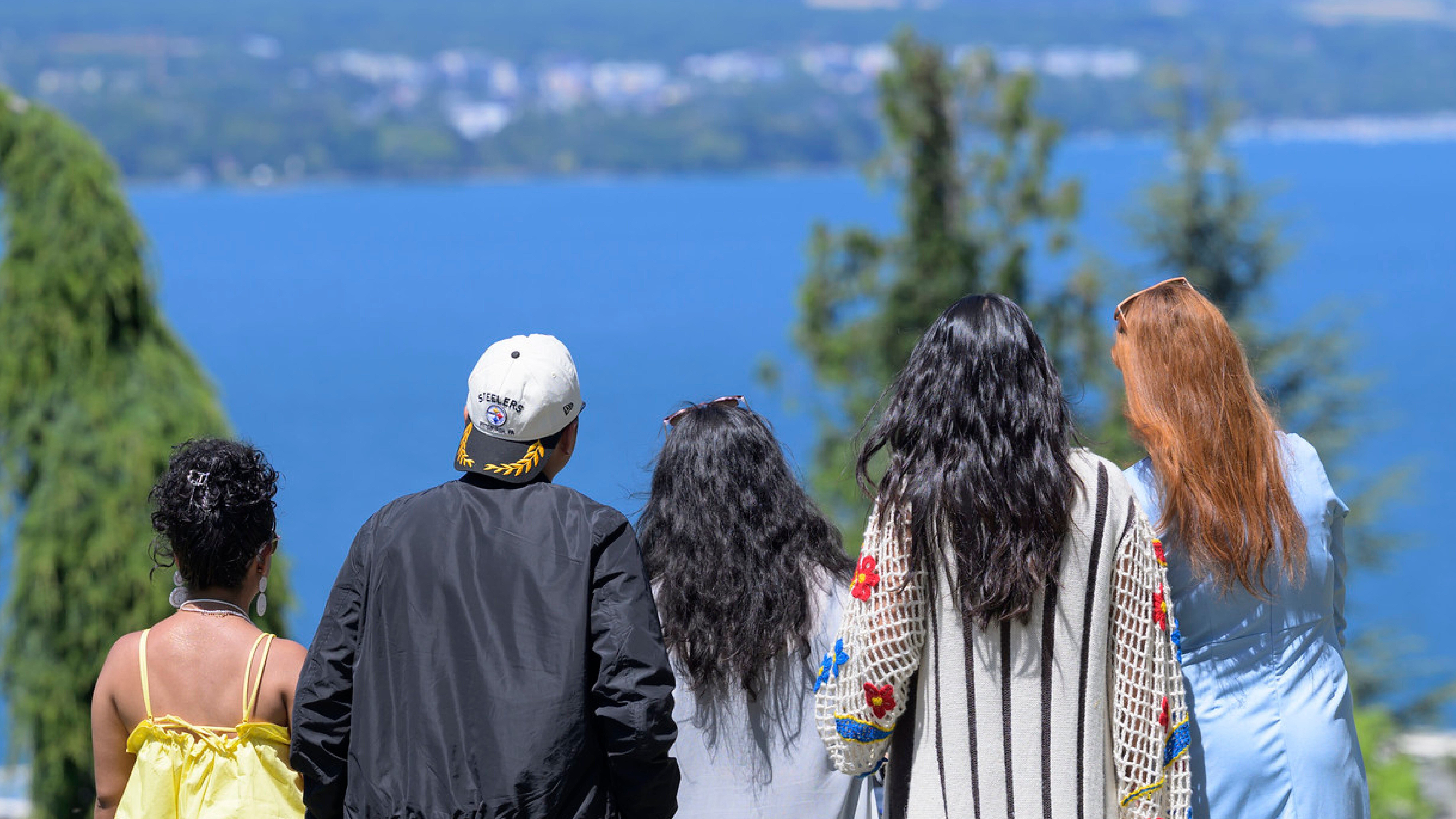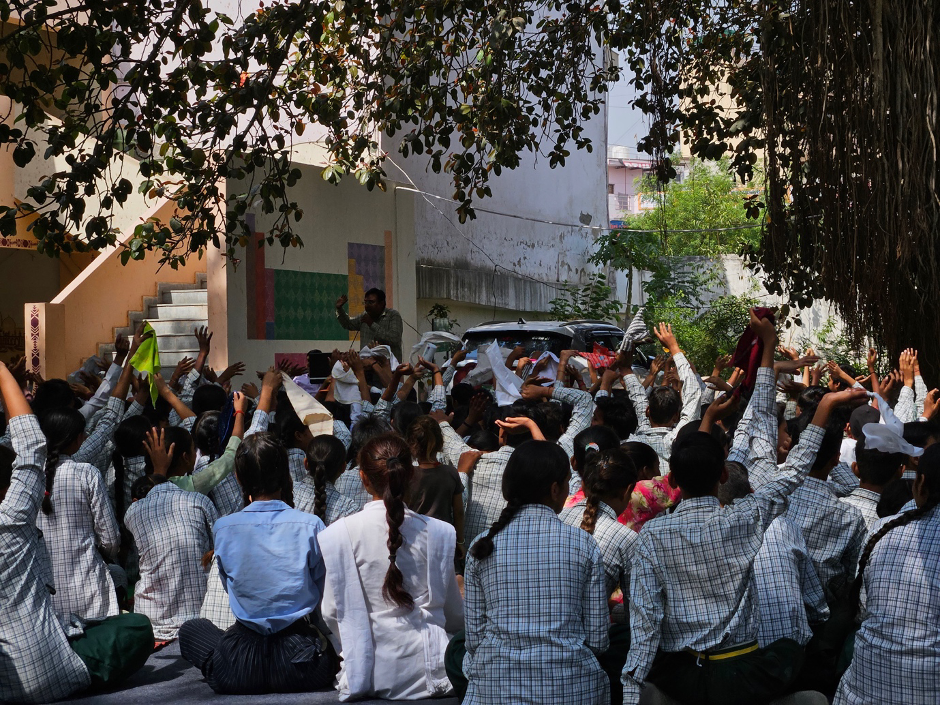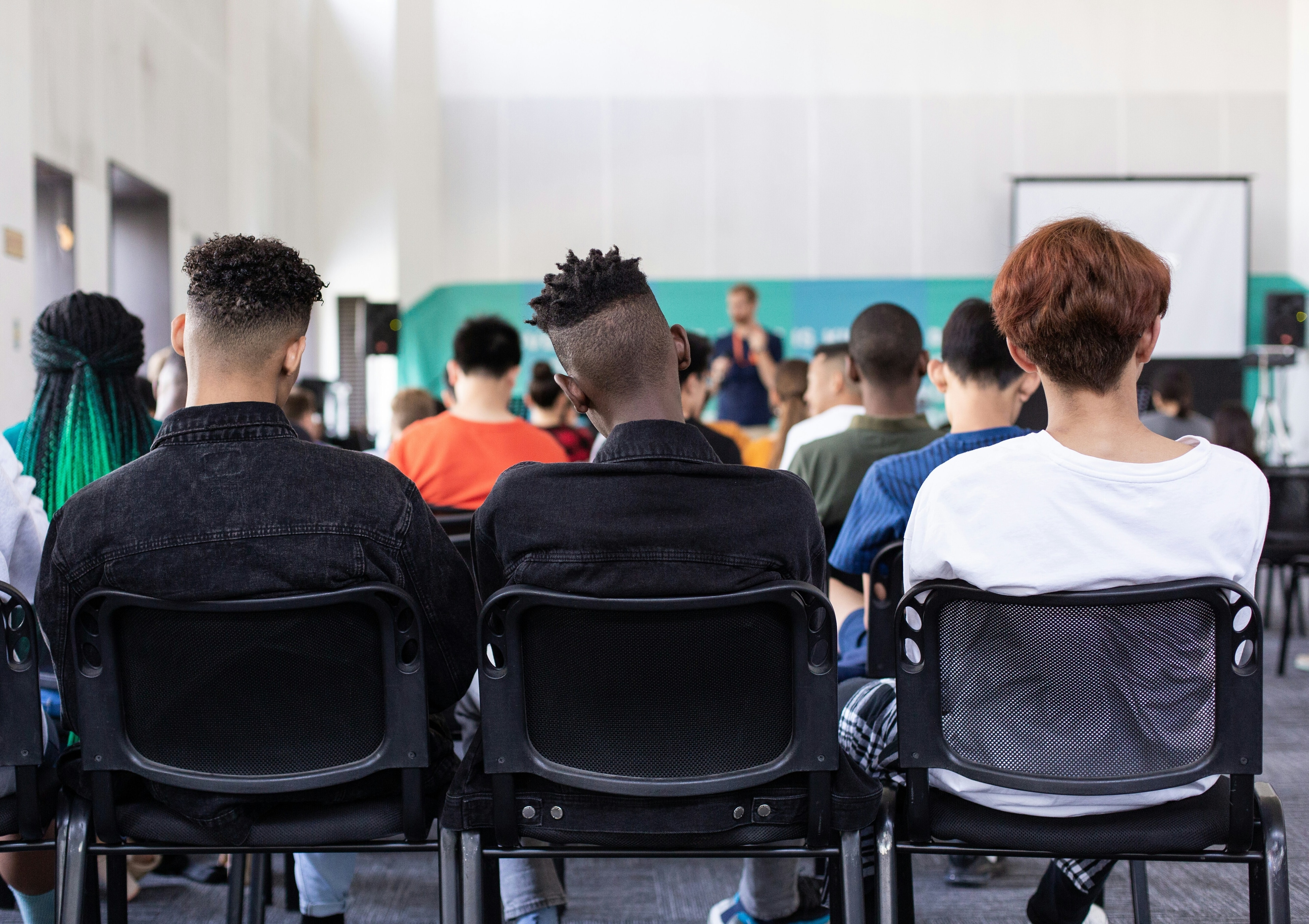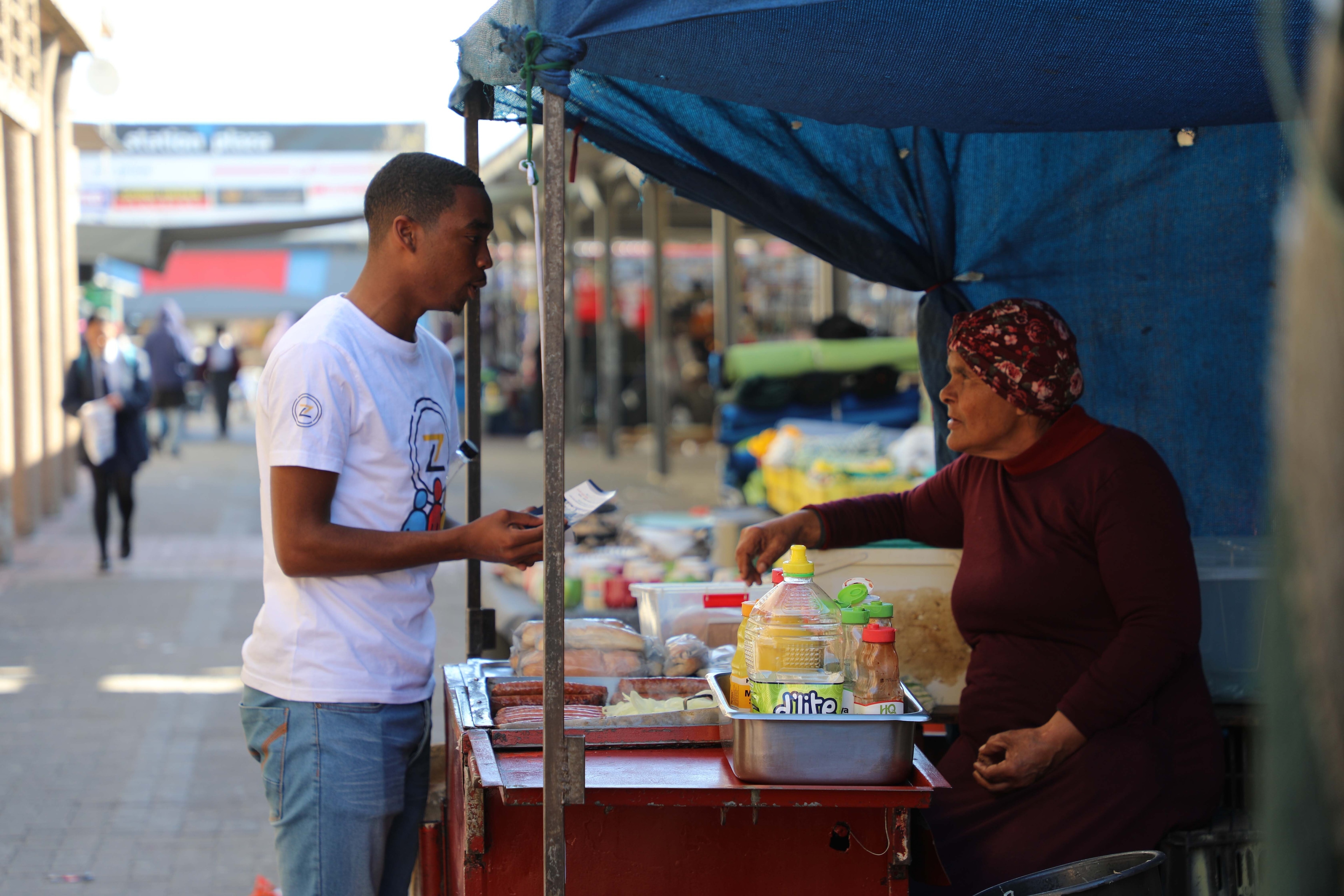7 tips from young leaders on achieving intergenerational justice

The World Economic Forum's Global Shapers and Young Global Leaders are committed to making the world a fairer, more sustainable and better place to live — and that means pursuing intergenerational justice, too. Image: Getty Images
Wadia Ait Hamza
Director, Leadership Programs, The Academy, Mohamed bin Zayed University of Artificial IntelligenceListen to the article
- Intergenerational justice means that no generation has a greater claim to the earth’s resources.
- For too long, younger generations have unfairly been left to carry a burden disproportional to the benefits they receive — but solving this issue requires intergenerational solidarity, not conflict.
- That's why the World Economic Forum will convene 800 Young Global Leaders and Global Shapers in a five-day summit dedicated to advancing intergenerational dialogue.
An intergenerational crisis is underway. Once-in-a-lifetime catastrophes like COVID-19 and fears of a global recession continue to disproportionately affect the careers and economic stability of young people.
Our economic systems disproportionately reward few, avert social mobility, underfund social security and put at risk the health of the entire planet.
Young people are right to be deeply concerned and angry about this. They see it as a betrayal of their future, but we can’t let this realization stifle us. Disappointment at the inaction of generations past only creates disengagement — or worse, discontent — among the very generations who hold the power and the influence to make a positive difference in the lives of people today, and tomorrow.
Instead, we must make intergenerational solidarity the norm.
Young leaders reflect on intergenerational justice
Today is International Youth Day and this year’s theme is Intergenerational Solidarity: Creating a World for All Ages. In recognition of this day, five members of the World Economic Forum’s Global Shapers and Young Global Leaders communities were asked: what will it take to achieve a world for all ages?
This is what they had to say.
1. Quality education is fundamental.
Vikas Pota, Founder and CEO, T4 Education
To achieve the UN Sustainable Development Goals (SDGs), the world must leverage the full potential of all generations — this starts with education. It is vital that leaders work with students, teachers, parents, businesses and NGOs to build strong schools. Strong schools build strong societies. They can have a profound impact not just on the lives and learning of the next generation, but on the communities around them too. The best schools make whole families healthier and tackle deep-seated social and environmental challenges. Leaders must listen to the wisdom accrued by our schools and work with them for lasting change in education and beyond.
2. Community wellbeing comes first.
Tariq Al-Olaimy, Co-Founder and Managing Director, 3BL Associates
All generations are healing as we try to address the needs and challenges facing our communities. One of the most valuable skills that we can practice together is community wellbeing. We must practice this skill by collectively challenging traditions, economic models and current ways of living that are harmful to generations past, present and future.
This requires listening and walking openly and honestly into the most complex questions of our time. Rather than seeking out immediate answers using the templates that have led to our collective traumas, we must instead enter this generational moment together and apply, instead, an ethical imagination to push the horizons of what’s possible, so that we can thrive together.

3. There is no planet B. We must work together.
Sahar Albazar, Member of Parliament; Deputy Chair, Foreign Affairs Committee, Egyptian Parliament
The SDGs are our blueprint to achieving a better and more sustainable future for all. Leaders must work proactively to involve and engage all generations in pursuing the SDGs. Leaders are also responsible for ensuring the SDGs are relevant to people of all ages to stimulate a sense of responsibility. All people need to realize that we only have eight years left to achieve the Global Goals. It is time for leaders and all people to work hand in hand to secure a better future because we have no planet B.
4. We each have a responsibility to take action.
Lamya Al Haj, Associate Professor of Molecular Biology, Sultan Qaboos University
Communication between leaders and people of all ages should be the guiding principle for achieving intergenerational solidarity and meeting the SDGs. Leaders and all people must recognize that one’s decisions make a difference, both positively and negatively, on the lives of others. Any attempt to solve a systemic problem may adversely have negative impacts on some while helping or improving the lives of others.
Intergenerational solidarity must mean that no generation wins or loses. Instead, all generations must be prioritized in decision-making.
”Intergenerational solidarity must mean that no generation wins or loses. Instead, all generations must be prioritized in decision-making. Cooperation and collaboration between generations should be pursued at all levels of society.
5. Ensure institutional involvement.
Basima Abdulrahman, Founder and Chief Executive Officer, KESK Green Design
Intergenerational solidarity answers questions as to the distribution of social, economic and environmental resources between generations. For example, climate change will impact the lives of younger generations adversely. Benefits and burdens, inevitably, are distributed inequitably.
Next-generation climate activists have established the climate crisis framing and drawn moral authority from the fact that they speak in the name of the future. They call for intergenerational justice arguing that no generation has a greater claim to the earth’s resources. Yet, power is unfairly concentrated and accumulated among older generations. This intergenerational conflict of interest calls for solidarity between past, present and future generations. Institutional youth involvement can influence policymaking and make recommendations to decision-makers in consultative and collaborative ways.
What is a Global Shaper?
6. Young people must be in the room.
David Moinina Sengeh, Minister of Basic and Senior Secondary Education and Chief Innovation Officer for the Directorate of Science, Technology and Innovation in Sierra Leone
When it comes to system transformation, our ability to expand the walls and raise the ceiling is dependent on who is in the room in the first place. This is why young people must have a place at the table. Beyond that, they must be seen, heard and given a decision-making vote if we are to transform our companies, organizations and our countries and accelerate toward the SDGs.
When it comes to system transformation, our ability to expand the walls and raise the ceiling is dependent on who is in the room in the first place. This is why young people must have a place at the table.
”The future is the domain of the youth. Our decisions and actions today will determine that future — let’s transform our world together with them.
7. Building a circular economy to bring about intergenerational justice.
David Hertz, Co-Founder and President, Gastromotiva
Eating is a political act. Food is activism, ethics, resistance and solidarity.
Of the 17 SDGs and their 169 goals to be accomplished by 2030, 11 are directly linked to food systems. Young people are the foundation of an innovative food system. To build a circular economy, we must change the way we eat. We must commit to food sovereignty and making daily choices in pursuit of this goal. The role of leaders is to encourage people to take positive action toward vulnerable communities. We can choose to be the curators of our lives and nothing is better than using food for the change we want to see in the world.
What is a YGL?
Convening young people for the future
Ensuring young people have a seat at the table in decision-making at all levels of society is critical to achieving intergenerational solidarity. Creating space for mutual understanding, cooperation and collaboration ultimately allows generations to listen and learn from one another.
The Forum is committed to doing its part. The World Economic Forum is home to two foundations that support young leaders to drive dialogue, action and lasting change. The Forum of Young Global Leaders accelerates the impact of business, government and civil society leaders under the age of 40 and the Global Shapers Community supports young activists, innovators and entrepreneurs, under the age of 30, to shape a more inclusive and sustainable future.
This month, 800 Young Global Leaders and Global Shapers will visit the World Economic Forum and the United Nations to participate in a five-day summit dedicated to advancing intergenerational dialogue and solidarity. Members of our next generation communities will visit and deepen their knowledge of global systems and institutions. They will share creative insights and innovative ideas with world leaders to transform systems and achieve diversity, equity and justice.
Our communities believe that decision-making must be open and accessible in order to be transformative. We must build bridges within and across generations and engage to listen, understand and co-create solutions. We need brave spaces for generations to be heard, questioned and challenged — and we must join forces, share power and practice generational wellbeing. This is the only path forward.
Don't miss any update on this topic
Create a free account and access your personalized content collection with our latest publications and analyses.
License and Republishing
World Economic Forum articles may be republished in accordance with the Creative Commons Attribution-NonCommercial-NoDerivatives 4.0 International Public License, and in accordance with our Terms of Use.
The views expressed in this article are those of the author alone and not the World Economic Forum.
Stay up to date:
Youth Perspectives
Forum Stories newsletter
Bringing you weekly curated insights and analysis on the global issues that matter.
More on Youth PerspectivesSee all
Christie Burley and Inés Yábar
November 5, 2025








